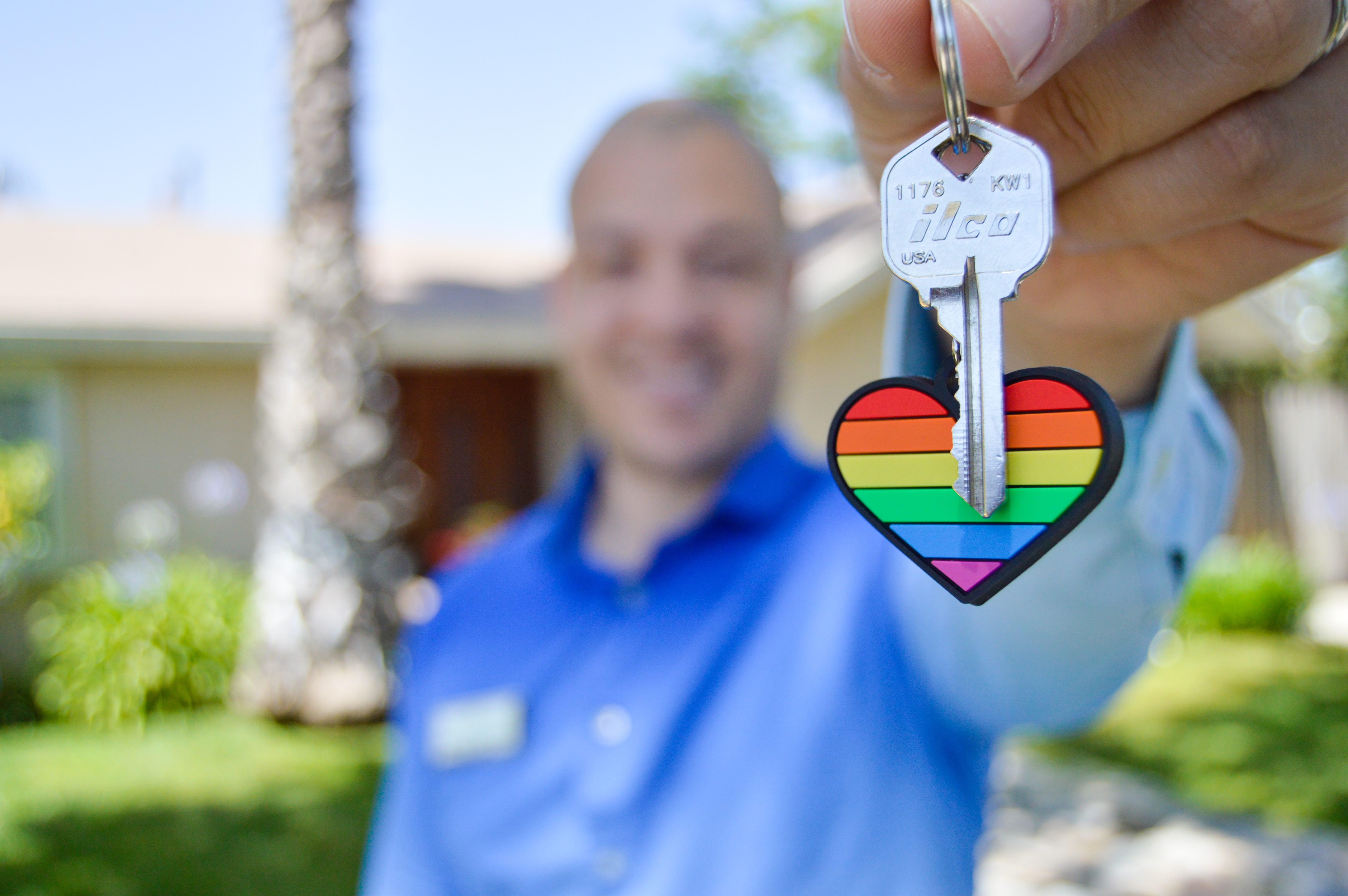To legalize unpermitted additions, the Building Department will go to your house and physically check all of the renovations that you made.
Selling a home with unpermitted work is difficult, but it is not impossible. We can help you sell your house with ease if you made constructions and modifications without the necessary paperwork.
We’ve already helped a lot of people to sell their homes even if they have unpermitted work. Although handling this issue is time-consuming, we can help you to speed up the process so you can sell your house right away. Let’s have a closer look at the most important things to consider if you want to sell a house with unpermitted work.
Can You Sell a House Without Improvement Permits?
Can you sell a house with unpermitted work? This is the question that many of you are currently asking, especially those who are worried that no one would buy their house.
Yes, it is possible to sell your house even if it has unpermitted improvements, but there are certain things that you need to do to make sure that you can sell it without any legal repercussions. Sometimes, you even have to sell your house at a discount if you are in a rush.
If you are not in a rush and you still prefer to sell your house the traditional way, you will face a lot of difficulties along the way. Here are some of the things that would make it hard for you to sell a house with unpermitted work:
- Legal Issues
If you are selling your house with unpermitted work, legal issues will arise, especially if you did not disclose this information. Buyers have the right to do their research about the property and they would eventually find out about this, but there would be legal repercussions and they might sue you.
Most of the renovations in your house need to have a permit because city inspectors will check if you’ve followed the code set by the state when it comes to home renovations and construction.
- Financing Issues for the Buyers
You are not the only one who would have to deal with problems when you are selling a house with unpermitted work. If you have a buyer who is applying for financing and he plans to buy your house even if it has unpermitted work, their loan applications might get rejected.
Home insurance companies won’t save them as well because renovations without permits are very risky since there is no assurance that the materials used are standard and they are following the code of the state.
- Buyers Can Back Out of the Deal
If your house has unpermitted work, you can expect that most of the buyers would say no immediately. No one wants to spend a lot of time and money to fix the legal issues concerning unpermitted works.
The buyers knew that if they completed the sale and bought a house with unpermitted works, the seller would have no responsibility for the property. If you are the buyer and you want to sell the house with code violations in the future, you will deal with the same mess that the previous seller experienced. There is a chance that you won’t be as lucky and you will end up spending more on the house.
Disclosing Unpermitted Work
As the seller and the current owner of the property, you are legally obliged to disclose information about unpermitted work in your property. Even if the issue is from the prior owners, you have to disclose it.
Once you’ve closed the deal and you acquired a house even if it has unpermitted work, the responsibility will fall on your shoulders. It means that if a legal case is filed against you because of unpermitted work, the previous owners won’t be held liable.
What Happens if the Seller Didn’t Disclose Unpermitted Work?
If you are the seller of the house, you are in for a lot of legal issues if the buyer finds out that there are unpermitted works in your house. Failure to disclose this information is the same as hiding damages in the house. The buyer can file a lawsuit against you if you failed to disclose this information to them.
How Should I Disclose Unpermitted Work?
The best way to disclose unpermitted work is to tell the buyers firsthand before they make a deal with you. You have to make sure that they know what they are getting into if they are going to buy the house.
As long as the buyer is fully knowledgeable of the unpermitted work in the property that they are buying, you won’t be held liable if they decide to file a case.
Can I Get a Retroactive Building Permit Before the Sale?
Yes, you can get a retroactive building permit before the sale, but the best time to do it is before you put your house on sale. If you want to know the reason, we will explain the process of obtaining a retroactive building permit.
- Prepare the Documents
If you plan to get a retroactive building permit, you should first find all of the documents needed for the inspection. Look for the structural, architectural, mechanical, electrical, and plumbing drawings depending on the modifications and renovations that you made in the house.
After filing for a retroactive permit application, the Building Department will go to your house and check the documents that you presented to make sure that they comply with the current codes of the city or state.
- Inspection
To legalize unpermitted additions, the Building Department will go to your house and physically check all of the renovations that you made. This is the time where they would scrutinize the work done on your house.
They might ask you to take down some of the renovations and there are also cases where they will ask you to rebuild them based on their feedback.
- Legalizing the Renovations
The inspectors will see to it that you would follow the strict guidelines of the state when it comes to construction and renovation. You have to options to consider:
- You can remove all of the renovations done on the house.
- Redo the renovations and follow the strict guidelines of the city or state.
You can pick either of the two. Removing the renovations would be a cheaper alternative so it would work best for people who don’t have the money to redo the renovations.
Redoing the renovations can maintain the value of the house and you can even sell it for a better price once all the unpermitted work is resolved.
As for the cost of legalizing unpermitted work, it would depend on several factors. If you voluntarily seek compliance for the unpermitted renovations in your house, you won’t have a citation fee. The cost would depend on the state or city where you are currently living.
The Easiest Way of Selling a House Without Permits
Legalizing unpermitted work requires a lot of work and you need money to redo or remove the renovations or modifications made on the house. If you have plans of selling a house with unpermitted improvements and you want to do it immediately without dealing with any legal matters, the best option is to sell the house as-is to a real estate investor for cash.
Real estate investors buy properties and they use them to earn money. There are investors who turn properties into rentals, while there are some who buy and resell properties to earn money. Because of these, real estate investors are always looking for properties with a price lower than its market value.

When you are selling a house with unpermitted work and you want to sell it as-is, you will have to put a lower price on the property. If you want other people or investors to buy even with this problem, you need to bring the price down. However, there are still a few benefits to this depending on your current situation.
- No Need to Pay for Inspections
You don’t have to pay the penalty to legalize improvements and you don’t need to spend money on the repairs. You will sell the house as-is and the investors will handle all the paperwork for legalizing the improvement.
- Sell it For Cash
Investors usually buy properties for cash so you won’t have to worry about the financing application of the buyer.
- You Can Sell it Fast
Investors can close the deal in just a few weeks so if you are in a rush to sell your property, this is your best option.
- No Closing Costs and Realtor Fees
Investors do not always use realtors to handle the properties and they always include the closing costs with their offer so it saves you more time and money.
- No Hassle with Marketing
When you look for agents to sell your house, they will have to market your house. If you look for an investor, they will buy it directly and you don’t need to worry about marketing, open houses, and more.
Conclusion
It is possible to sell a house with unpermitted work and you have various choices when it comes to this. You can choose to deal with the problem yourself and legalize the renovations or you can just look for an investor, offer the house for a lower price, and move on with your life. Selling your house would depend on your current circumstances, but both of these choices would help you.


Join the conversation!